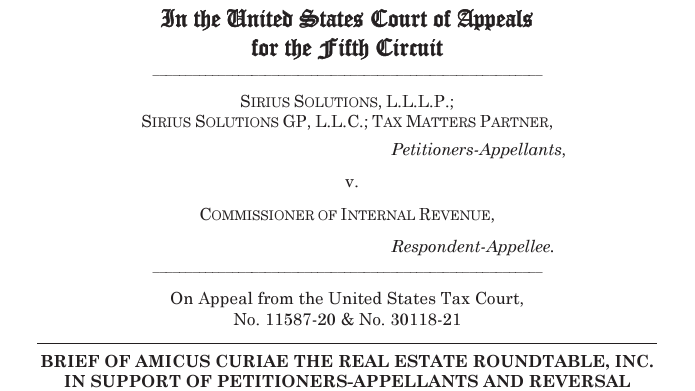
After weeks of discussions, the House GOP and Speaker Mike Johnson unveiled their long-term budget blueprint, which would allow congressional committees to move forward with trillions into tax cuts and spending reductions. However, negotiations to fund the government ahead of the March 14 deadline have stalled.
Committee Advances Budget Plan
- The House Budget Committee voted late Thursday night 21-16 to advance their budget resolution, which authorizes up to $4.5 trillion in tax cuts and $2 trillion in spending cuts over the next decade. The fiscal blueprint also calls for $300 billion in new border and defense spending and a two-year extension of the debt ceiling. (Politico, Feb. 12)
- While Speaker Mike Johnson hopes to bring the resolution to the floor later this month, there are a number of details to hammer out that could hinder its passage. Overcoming the GOP’s extremely narrow majority in the House (218-215) will be a challenge.
- House Budget Republicans secured passage of their resolution along party lines after striking a deal with the Freedom Caucus to win over fiscal hardliners Reps. Ralph Norman (R-SC) and Chip Roy (R-TX). (Roll Call, Feb. 13)
- An amendment from Vice Chair Lloyd Smucker (R-PA) cemented the agreement by linking the size of a future tax-cut package to spending reductions. Under the modified resolution, the amount of the tax cuts would be reduced if the legislation does not include the full $2 trillion in spending reductions.
Tax Negotiations

- House Ways and Means Chair Jason Smith (R-MO) also faces a difficult road to extend key provisions in the 2017 Tax Cuts and Jobs Act (TCJA). The $4.5 trillion figure for tax cuts is not enough to permanently extend the TCJA and include President Trump’s other tax priorities. (Politico, Feb. 12)
- How to come up with the spending cuts to fund a permanent TCJA extension and other priorities remains a fundamental question. The budget package is expected to include significant reductions in Medicaid, which provides health benefits to low-income families and individuals. President Trump has expressed concern with those health care cuts. (Politico, Feb. 13)
- Some estimates place the cost of the President’s additional tax priorities as high as $2 trillion. These include exempting tips, overtime pay, and Social Security benefits from tax. Tax-writers must also find a way to pay for any adjustments to the SALT limitation, which are widely understood as needed to secure Blue State Republican votes in the House.
- Tax-writers are expected to look for other tax offsets, raising concerns that they could target issues such as the deductibility of state and local property taxes paid by businesses.
- Limits on the deductibility of property taxes would upend the federal income tax by denying a deduction for a basic cost of doing business. It would severely hurt property values, real estate markets, and the millions of Americans employed directly and indirectly by the real estate industry.

- “Capping or eliminating the federal deduction for business property taxes would be a major policy misstep,” said Roundtable President and CEO Jeffrey DeBoer. “Property taxes are not optional—they are a fundamental cost of doing business.”
- “This change would force businesses to pay federal tax on money they never actually receive, placing a heavy burden on real estate investment and development. The impact would be severe for property owners repositioning assets—such as converting office buildings into housing—where property taxes remain due even when rental income is disrupted. Losing this deduction would drive up operating costs, which would ultimately be passed to consumers through higher rents, and hindering economic growth at a time when we should be encouraging investment and revitalization,” said DeBoer.
- House Republicans are also considering shorter extensions of the expiring tax cuts in a bid to fit them into the budget plan’s constraints.
- However, in a letter released Thursday, Senate Republican leaders, including Majority Leader John Thune (R-SD), Finance Chair Mike Crapo (R-ID) and seven others, said they would not support a tax package that only provides temporary relief from tax hikes. They said that any extension of the provisions due to lapse at the end of this year “must” be permanent. (Politico, Feb. 13)
- Meanwhile, congressional Democrats have attacked Republican’s tax and spending cuts as a “betrayal of the middle class,” though they have minimal power to stop the GOP’s budget plan if Republicans are able to align on a strategy. (Politico, Feb. 13)
Reconciliation

- To avoid the Senate filibuster, the tax and spending cuts will require the House and Senate to pass identical budget resolutions as part of the reconciliation process—and the Senate is pursuing its own budget proposal. (Politico, Feb. 12)
- On Wednesday, the Senate Budget Committee approved its own budget blueprint, which includes up to $345 billion in funding for border security, immigration enforcement and defense. However, the resolution punts on any sweeping tax and spending cuts. (Washington Times, Feb. 12)
- Preferring a two-step strategy over the House Republican’s plan, Senate Budget Chair Lindsey Graham (R-SC) said, “To my colleagues in the House, I hope you can pass one, big beautiful bill.” “But we’ve got to move on this issue.” (Politico, Feb. 12)
- The March 14 deadline to fund the government is fast approaching. House Appropriations Chair Tom Cole (R-OK) indicated that negotiations are ongoing, but with much activity and attention focused on budget resolutions, little progress has been made.
- If congressional leaders are unable to extend government funding before the deadline, key programs like the National Flood Insurance Program (NFIP) could lapse. (Politico, Feb. 12)
Looking Ahead
While the Senate will be in session next week after President’s Day, the House is out of session until February 24. The Roundtable will continue to follow developments on tax and budget negotiations closely.




















